Stuck, but sticking together: Refugees and their years of uncertainty stranded in Indonesia
Indonesia is home to about 14,000 refugees. Each carries a unique story and diverse reasons for ending up stranded in Southeast Asia.
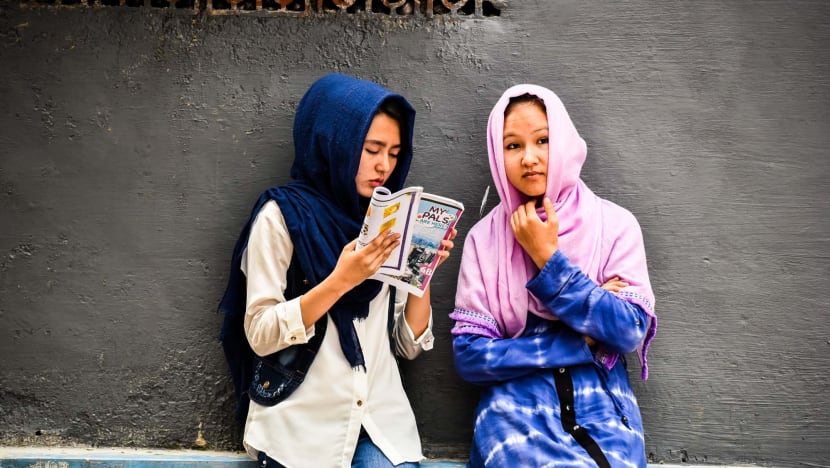
Resettlements for refugees in Indonesia could now take longer than a decade. (Photo: Jack Board)
JAKARTA: Mozhgan Moarefizadeh and her family had less than 24 hours to decide their future.
After years hidden in their own country, displaced from their home, branded enemies of the state, it had all come down to this - a choice in front of them at a friend’s travel agency.
Fleeing Iran was a decision tainted with danger. The world had never seemed so wide, but the options so few.
It was early 2013 and Iran was awash with political division. Flames of protest had ignited on the streets and opponents of the regime were met with violent reprisal.
Mozhgan’s father had supported an opposition movement calling for a more progressive direction for the nation. It landed him and the family, like countless others, squarely in the crosshairs of the regime.
In these moments of torment, where escape lingered within reach, the answer was Indonesia.
“It was the worst mistake of my life,” Mozhgan says, six years later.
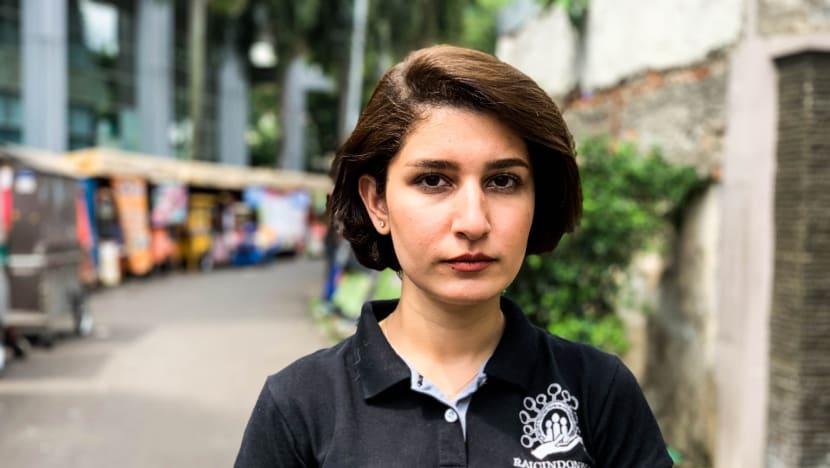
When they landed in Jakarta, pariahs of their land, carrying a suitcase of clothes, cash and a deeper weight of fear, the stay was meant to be a short one.
Human smugglers who had orchestrated the fraught journey out of Iran had greater promises to fulfil - providing Mozhgan, her parents and younger brother safe passage on a boat to Australia.
This was a peak period for the networks that preyed on human vulnerability, selling thousands of new arrivals a vision of a brighter future over the distant horizon, sometimes in exchange for their life savings.
The fishing boats tasked with what seemed an improbable journey were often barely seaworthy. It was a chaotic business enveloped by desperation.
Migrants were frequently dying at sea and Indonesian and Australian authorities alike were delivering hammer blows to the smuggling operations, intercepting boats in the darkness and sending their fearful occupants back.
“It was always at night. We were separated. We always had to rush through the water,” Mozhgan recalls.
“There were people hanging from the boat. It was dirty. There were cockroaches. There was not enough food. There wasn’t enough water, or life jackets. It was a fishing boat, not fit for humans to be on it. It was so scary.”
After being seized and released twice, on their third attempt, amid a surge of adrenaline and confusion, Mozhgan made a decision that would change her life. She refused to go any further. She ran. The boat left without them.
“In the morning we found out the boat capsized and many people died.”
Mozhgan was alive. But that exit door was closed.
“After that I had to actually Google it, to find out what it means to be a refugee or to be an asylum seeker.”
It was a new label - a stigma, she calls it - she would start to carry in this foreign place, and one the now 27-year-old has still not been able to shake off.
UNCERTAINTY RULES
Indonesia is home to about 14,000 refugees - escapees from war zones, political persecution and social inequality across the globe.
Each carries a unique story and diverse reasons for ending up stranded in Southeast Asia, from the conflict-wearied Hazaras of Afghanistan to Sri Lankan Tamils fleeing human rights abuses.
Yet, they are all bound by one lingering factor - uncertainty.
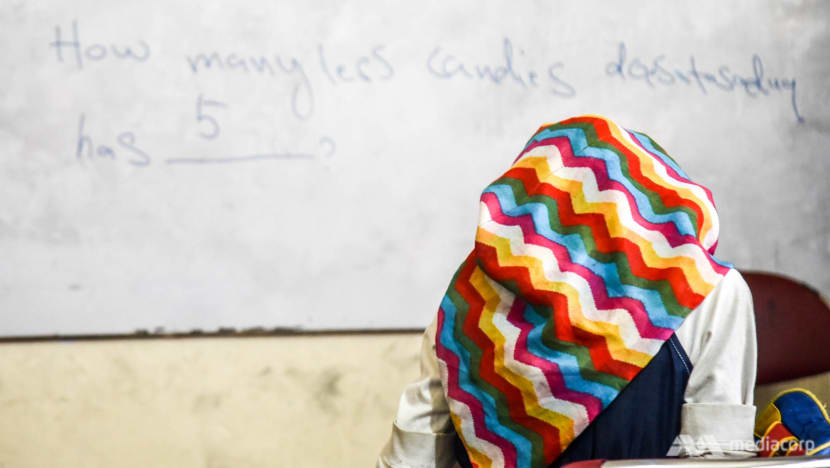
“All refugees, our lives are the same,” Mozhgan says.
“There can be rich refugees, poor refugees, people living on the street, people protesting, people who are really highly educated, people who never went to school in their lifetime. But my life is their life.
“It’s just like you’re living, but you’re not alive. I get tired of fighting for the future that I don’t know what it holds. I don’t know how long it will take. When I came here, I came for three days. Now it’s been six years.
“I’m young, my days are counting. There are children here, their days are counting. There are older people here. I’m losing a lot of things that can’t come back. It’s time, it can never come back. And we are losing it.”
Indonesia is not a signatory to the United Nations’ 1951 Refugees Convention, a treaty that sets out the rights of those seeking asylum and the responsibilities of the nations that host them.
In this country, it makes the refugee experience a more problematic one.
They are not permitted by law to work in any capacity, earn money independently or attend Indonesian schools. The result is an enforced malaise and communal lethargy. Mental health concerns are serious - suicide attempts are not uncommon.
The vast majority of recognised refugees like Mozhgan are biding their time waiting for resettlement in a third country as Indonesia will never be home for them. The timeframe for this relocation has stretched from an initial period of two to three years in the early part of this decade, to an indefinite stay.
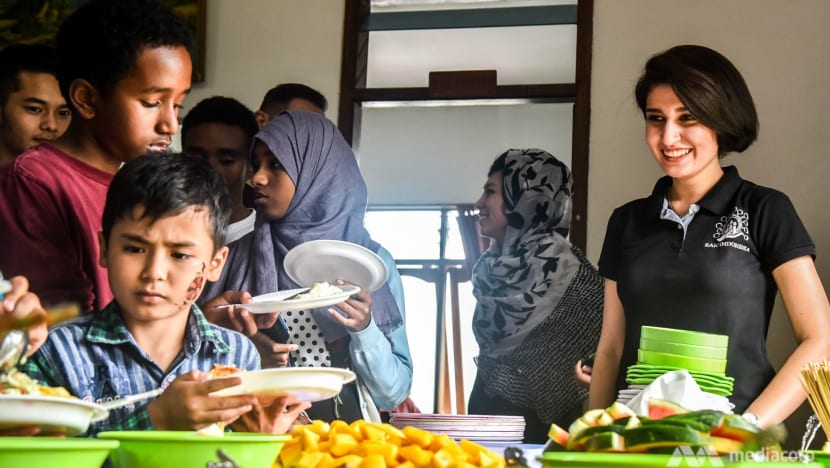
Refugees say they have been told by UNHCR, the coordinating agency for resettlement, that they may never reach a third country.
In the meantime, about 8,600 refugees have fallen under the care of the International Organisation for Migration (IOM), whose project in Indonesia is funded by the Australian government. The tightening of Australia’s borders and the selectiveness of its refugee intake is one of the principle causes of the extended stays of many who dreamed of forging a new life there.
IOM has placed 98 per cent of its caseload of refugees into community or temporary accommodation, away from the detention centres that Human Rights Watch described in 2013 as “overcrowded, sordid facilities that are all too often violent”.
Deputy chief-of-mission Dejan Micevski explains that migrants now receive monthly allowances from IOM, health and psychosocial assistance and options for better pathways to education.
Yet the speed at which refugees are being resettled has slowed down, turning IOM efforts into a longer term project. And Micevski cannot guess how long the refugees will need to wait, or how long their funding will last.
It’s a million-dollar question. Everyone is talking about protracted stays but nobody is talking about the number of years. No one knows.
We don’t know who or where people will be resettled. It will be challenging but that’s why we are trying to find how we can make their stays easier in Indonesia.
A budget cut by its Australian government donor means refugees who failed to register with IOM before March 15 this year are no longer able to receive any assistance. That means no housing, no food, no allowance.
There is a growing frustration building on the streets. In Kalideres, a subdistrict of West Jakarta, about 200 migrants are camped out demanding to be admitted into a nearby detention centre.
Around the UNHCR building in central Jakarta, rows of single-person tents line the thin footpaths. Their occupants are mostly Afghan refugees protesting the delays in their processing. Some have slept on the streets for more than a year as their feelings of helplessness grow.
“It’s never easy to see a family on the street when you know you were previously able to assist them," Micevski said.
"Now you have to say no. Unfortunately we cannot assist them. There may be other options for them."
In many cases, that option is the migrant community itself.
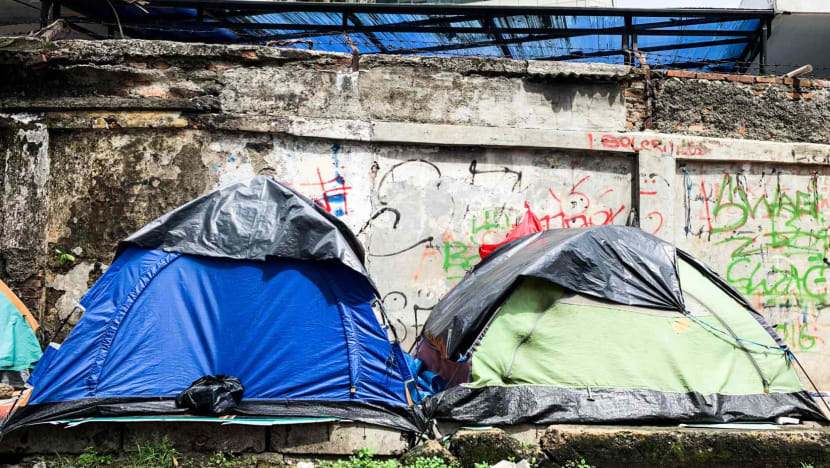
"HOW ABOUT MY OWN LIFE?"
Mozhgan is now a somewhat reluctant leader of the “aliens” of Indonesia. Her language skills have seen her become a beacon for others in search of a guiding hand through the legal and social minefield of seeking asylum in the country.
Facing an overwhelming demand, she created the Refugee and Asylum Seekers Information Centre (RAIC) as a one-stop information website, translated into four languages.
Mozhgan runs RAIC solely with her mother, after her fellow founder was recently re-settled.
She has extended her work to providing specialist eye care with help of her Indonesian partner Patrick, and delivering packages of essentials, like hygiene kits, to refugees in the grip of despondency.
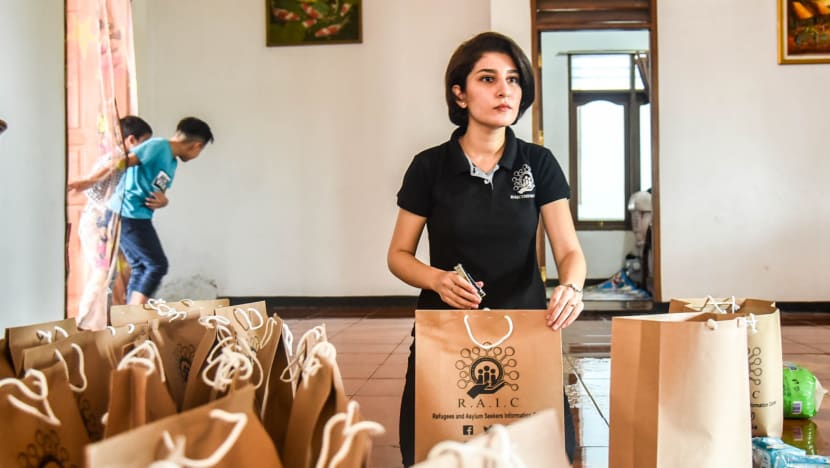
It has become like a full-time job, but there are no benefits aside from the satisfaction it brings to see others have big or small victories in their stressful lives.
This year, in a house that RAIC helps rent for a group of 28 people, she organised a Christmas gift exchange. With their faces painted as superheroes and butterflies, smiles crept onto the faces of children who previously had been left frail and sick on the streets.
“It does help me, it makes me really happy to see them. And they’re really nice. Every time we give them love, they give love back,” Mozhgan said.
“I do things for other people to make myself feel better. To have these temporary joys in my life.
"But it gets to the point where I’m like, how about about my own future? How about my own life? Do you know how many resettlement forms I filled out for other people who left this country, but I’m still here?"
And hers is just one of the mushrooming refugee-led initiatives designed to help their own diverse community. People in desperate need, in a dire chapter of their life, putting their own uncertainties to the side for the sake of others.
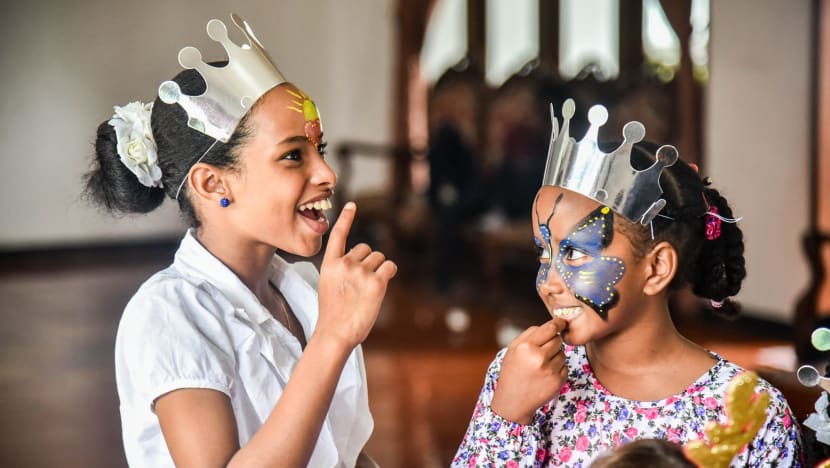
"I WANT TO EXIST"
In a small town outside Jakarta, it is a cool morning as young students begin to pour through an open gate of a school built on the aspirations of refugee families who grew tired of waiting for others to assist them.
Colourful swirls of the girls’ headscarves illuminate a small yard, where children play before a bell rings for class. They step onto floors with decorated carpets and file into classrooms adorned with learning posters, drawings and world maps.
It could be a scene at any school around Indonesia, but this is more precious.
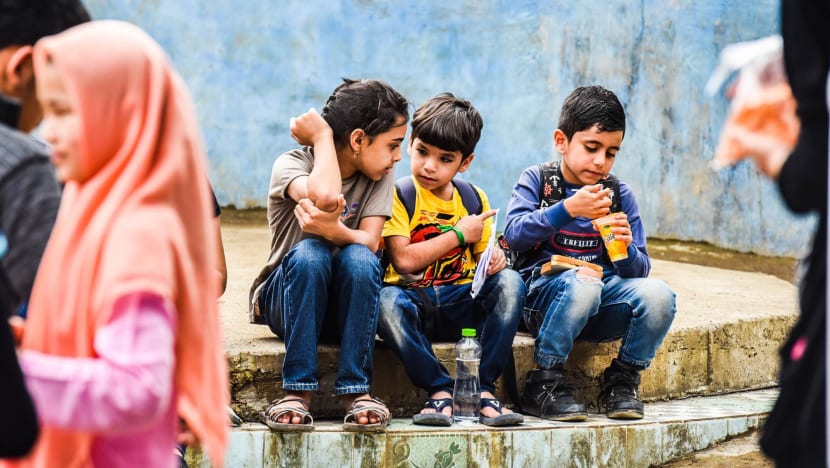
Everyone here is a refugee, including the volunteer teachers and the principal of the school, 19-year-old Abdullah Sarwari. He, like most of the 300 students, is a Hazara, an ethnic group of Shia Muslims from Afghanistan targeted by extremist outfits like the Taliban.
Abdullah has never stepped foot inside the country of his roots. He was born in Pakistan after his parents fled the dangers of Afghanistan. When he was two, they were pushed on to Iran, where he endured - and at times even enjoyed - a problematic upbringing in the face of institutionalised racism.
“I attended a refugee school just like this. Very similar. Maybe fewer resources. Nobody was getting paid and we had to share books,” he said.
“We didn’t have any documents or legal status in Iran, so we were deported. My family, we didn’t want to go specifically to Australia. But just a safe country, a place we could call home, go to school and have a normal life.”
They have not yet secured that place, but Abdullah has managed to find purpose.
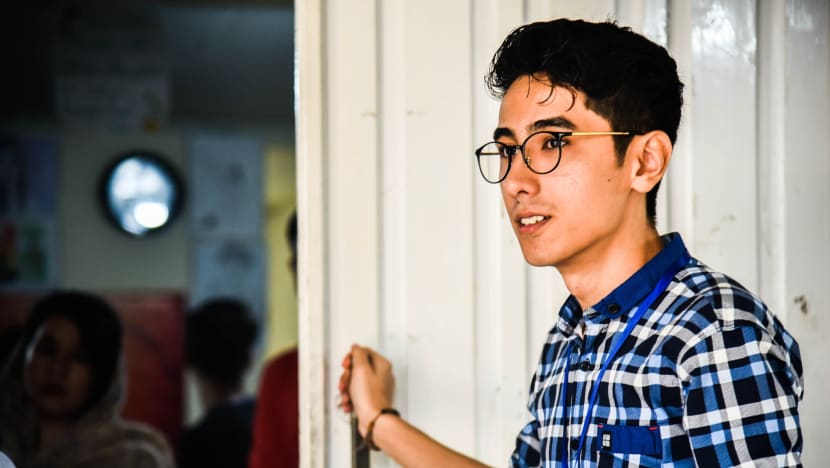
After arriving in Indonesia in January, 2015, Abdullah found himself in a worsening cycle of depression. For six months, he explains, he spent his days hiding away in his room. Now, he runs a school called the Refugee Learning Center (RLC) that is bringing essential life skills to children - and adults - otherwise prone to be left behind forever.
RLC is like a candle in the dark. It’s given me a reason to wake up every morning and have a motivation, something positive and it’s really changed my life. In my situation, this is the best thing I can really do right now.
He loves computers and photography, and wants to run his own business one day, when he can “catch up on life”.
The centre began as a defiant experiment by the refugee community, funded by families as a collective, but it has since been supported by non-government group Same Skies, which aims to empower individuals by giving them more ownership and direction of the project.
“We think that refugees are too often perceived as a problem or a burden, as incapable and vulnerable, and as a drain on the resources of their host nations,” said the NGO’s international director, Julia Frei.
“Our aim is to strengthen their sense of community and to help them develop their independence.”
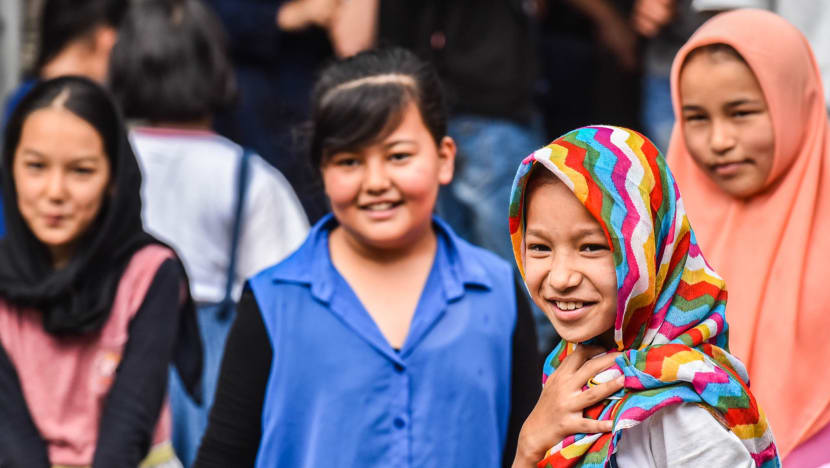
"WHAT KIND OF NATION ARE WE?"
As someone constantly marginalised, Abdullah has been trying to defy expectations his entire life.
“Give the refugees a chance, you will be amazed at what they can do, their resilience, their motivation, their courage,” he said.
Still, he and the others feel on they are on borrowed time in the local community.
“Until we reach a more permanent destination, a place where we are given basic rights, we will always feel like outsiders, like we don’t belong.”
The location of the school is kept undisclosed amid a rising fear of anti-refugee sentiment, sometimes flamed by point-scoring politicians using religion as a tool for division.
Abdullah says his community has learnt to keep a low profile, sometimes at the expense of significant cultural or religious events. But the Hazaras are survivors and compromise has become a central tenet in their struggle.
Human Rights Watch monitors religious intolerance in Indonesia, and researcher Andreas Harsono says there are growing threat levels being fanned by some Sunni groups.
“Many of these refugees are running away from sectarian violence. Most of them do not want to stay here for this reason,” Harsono said.
“You are unfortunate if you are a Shia in an anti-Shia neighbourhood. They know very well about this anti-minority sentiment in their homeland and in Indonesia. They are scared.”
Advocacy groups like the Sandya Institute want the national government to do more to help the vulnerable, despite the refugee issue being low on the priority list in a country of more than 260 million people.
Signing the Refugee Convention would be one solution, but even without taking that step, a presidential decree signed in 2016 should be offering better protections, says Sandya’s executive director Diovio Alfath.
"When we talk about human rights, we don’t prioritise one thing over other things," he said.
"We should question ourselves as a nation if we don’t respect the dignity of human beings, to allow international protections in Indonesia, to protect those who seek asylum in Indonesia. What kind of nation are we?"
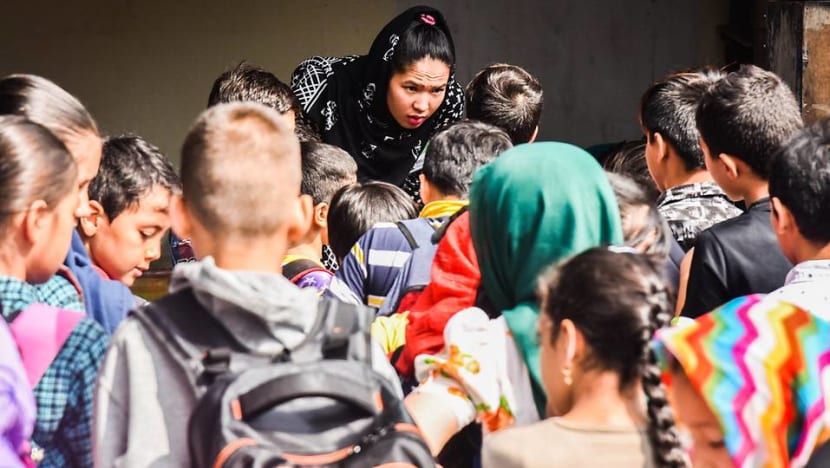
Abdullah agrees that Indonesians are welcoming in nature, but there is a lack of awareness about what being a refugee means, and why they have come to this country.
Returning home is not an option for him, or for Mozhgan. Both of them dream about that day. They talk about the food they miss, their friends and the different life they once had.
Moving to the United States or Canada or New Zealand is their overwhelming hope, but it is their home roots that pull the hardest.
“I follow Instagram accounts showing my town because that’s home to me.” Mozhgan said.
“As soon as I arrive in Iran, I will go to visit my grandmother because I miss her so much. It’s been six years and I haven’t seen her. She’s very sick. What if she dies and I don’t get to see her?
“I want to be comfortable. I want to be there, I want to feel normal. I want to exist and I want rights like everybody else. I would go back in no time if I could. I think about it every single day.”














